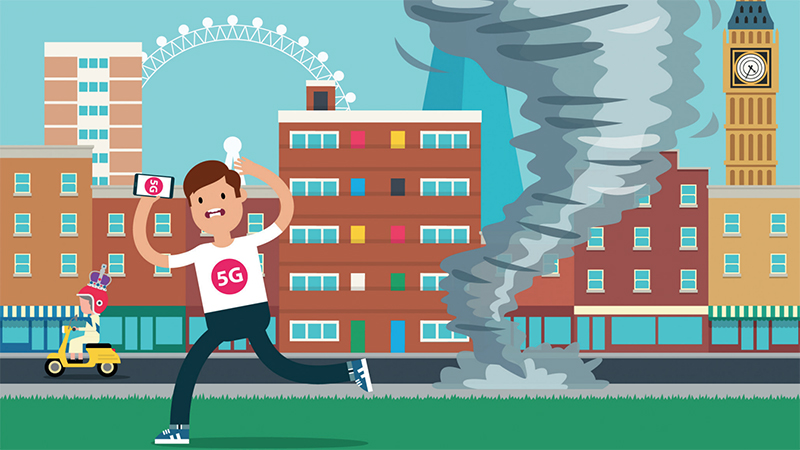Don’t fall for the 5G fallacy
Why we shouldn't get sucked in by the bluster over the next generation of mobile connectivity


If you feel the need, the need for 5G speed, may I be the first to pour a bucket of filthy water over your fifth-generation enthusiasm?
This media hype happens at the start of every new mobile data generation. The networks hand a select bunch of journalists new handsets, they fawn over the fearsome new speeds and consumers rush out to spend ridiculous sums on flashy new phones, only to discover the reality is a darn sight less exciting than those early reports suggest.
Twenty years ago, the big new thing was 3G. I remember standing on the roof of the Sunday Times building in Wapping (the only place I could get a signal), getting a little knee tremble as my download speeds hit something like 1Mbps. I then conducted a horribly pixelated video call with the only other journalist I knew had a 3G handset. It was the first and last time I used 3G to make a video call, which you may recall was the big hope of that particular technology. The hype bubble burst pretty quickly.
With 5G, everyone's reaching for the asthma pumps over the fantastic promised speeds. Journalists using the fledgling 5G services on EE and Vodafone are breathlessly tweeting pics of speed tests showing them getting 220Mbps on the streets of London, or even close to 1Gbps (1,000 megabits per second in old money) as they sit aboard a train. It's undoubtedly impressive, even to a crusty old cynic like me but it's a lie.
Firstly, those dozen or so journalists cantering around London's landmarks to register their gobsmacking speed tests were pretty much the only people using the entire 5G network at the time of writing. It's the journalistic equivalent of Jeremy Clarkson driving around an empty track at 180mph in the new Mercedes and claiming that's what everyone's going to be doing soon. Except as soon as the traffic builds on the network, those speeds just aren't possible.
Not even close.
Then you drive into the brick wall that is mobile network data caps. Even if you can download a 4K movie in a matter of seconds on your new 5G handset, you won't be doing it very often if at all because of your data cap. The biggest data allowance on EE's 5G plans, for example, is 120GB and that costs a stonking 89 a month.
Sign up today and you will receive a free copy of our Future Focus 2025 report - the leading guidance on AI, cybersecurity and other IT challenges as per 700+ senior executives
The cheapest 5G tariff still a hefty 69 a month sets the data cap at only 10GB. A single 4K movie will swallow that whole, and then some.
And all of this is assuming you're within reach of a 5G mast in the first place. It's all well and good for the London-based tech journos to blather about getting 500Mbps on their commute, but out here in the Ray Mears wilderness of (ahem) Sussex, I'm still struggling to latch onto a 4G signal.
I just stood in my back garden (I have to go outside to get a reliable signal) and recorded a speed test of 7.39Mbps download and a pathetic 0.63Mbps on the upstream. And I've got more chance of seeing the Queen drive past naked on a moped in the next couple of years than a 5G signal hitting Burgess Hill.
So pardon my lack of enthusiasm. You can call me when there's something to get excited about.
Barry Collins is an experienced IT journalist who specialises in Windows, Mac, broadband and more. He's a former editor of PC Pro magazine, and has contributed to many national newspapers, magazines and websites in a career that has spanned over 20 years. You may have seen Barry as a tech pundit on television and radio, including BBC Newsnight, the Chris Evans Show and ITN News at Ten.
-
 Trump's AI executive order could leave US in a 'regulatory vacuum'
Trump's AI executive order could leave US in a 'regulatory vacuum'News Citing a "patchwork of 50 different regulatory regimes" and "ideological bias", President Trump wants rules to be set at a federal level
-
 TPUs: Google's home advantage
TPUs: Google's home advantageITPro Podcast How does TPU v7 stack up against Nvidia's latest chips – and can Google scale AI using only its own supply?
